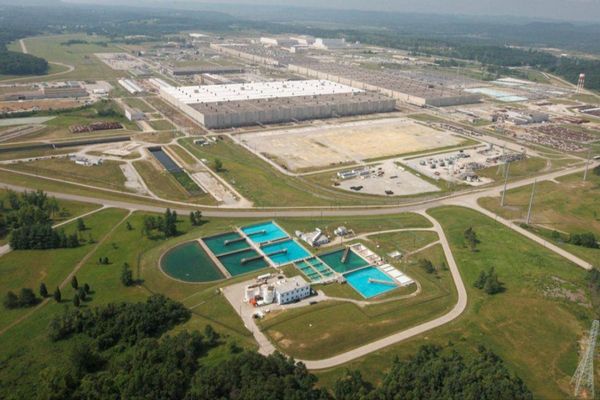
Governments seem more interested in protecting their short-term electoral interests than reducing the harm they are causing the planet – NZ's transport biofuels delay comes at an upfront cost of 230,000 tonnes of emissions but the minister says the reductions will be found elsewhere
Comment: Early Wednesday morning, the Government announced $20 million climate compensation for the harm caused to its developing neighbours by years of agricultural and industrial emissions. It’s small Pacific island nations that have borne the brunt of the harm, Cook Islands Prime Minister Mark Brown told COP27 in Egypt, even though the biggest nations are responsible for 80 percent of emissions.
But New Zealand gives with one hand, while taking with the other. Three hours later at 8am, Energy Minister Megan Woods announced she would be postponing the transport biofuels mandate by a year, through to April 2024.
It’s the starkest headline in a package of fuel security measures, which highlights which crisis the Government is most concerned about. It’s cost of living, ahead of next year’s election, not the generational challenge of climate change.
“While biofuels will account for a very small part of the overall fuel price, we recognise that motorists don’t need any extra costs in the current cost of living crisis,” Woods says.
She acknowledges the Sustainable Biofuels Obligation plays a significant role in delivering NZ’s Emissions Reduction Plan; by 2035, she says, it will prevent up to 9 million tonnes of emissions from cars, trucks, trains and ships.
But the delay comes at an upfront cost of 230,000 tonnes of emissions . That will have to be found from other reductions such as projects supported by the Government Investment In Decarbonising Industry Fund, she suggests.
An example is two GIDI co-funded projects that will reduce carbon emissions at greenhouse capsicum grower Southern Paprika by around 16,000 tonnes of CO2 per year, with a lifetime abatement of 249,950 tonnes. The initial $68.7 million investment in GIDI is set to deliver 7.46 million tonnes of lifetime CO2 abatements. It’s now grown to $650 million dollars through Budget 2022, to focus on both high impact projects of national significance as well as regional projects.
The Government would then play catch-up on the biofuel mandate, with more carbon intensive requirements to enable the reduction of that 230,000 tonnes in the subsequent 2026-30 emissions budget.
This is the very problem that small nations such as Cook Islands are expressing concern about this week at COP27. "We urgently need developed countries to deliver on their climate finance commitments," Brown told COP27 leaders.
When it comes to the crunch, governments of bigger nations seem more interested in protecting their short-term electoral interests than reducing the harm they are causing the planet.
And perversely, the postponed mandate may make little difference to the price at the pump. AA’s principal policy advisor Terry Collins says the 3c/l saved on importing more expensive biofuels will be offset by the higher prices paid on the emissions trading scheme, which will be passed on to motorists.
“The net benefit for the consumer will be negligible,” he says, “but it’s one less mandated requirement to deal with at a difficult time. This is the difficulty when we’re transitioning from one fuel source to another – we can’t get rid of our existing fuels until we’ve got something to replace them.”
The Ministry of Business and Innovation disputes Collins' argument that the cost savings at the pump, in postponing the biofuels mandate, will be offset by higher emissions trading scheme prices.
"Due to the lack of infrastructure for first generation biofuels, obligated parties would likely have relied heavily on the use of renewable diesel to meet the 2023 target," a ministry spokesperson says. "Renewable diesel is currently about 1.6 to 3 times more expensive than diesel.
"As infrastructure for deploying first generation biofuels comes online from 2024 onwards, the cost impact of the obligation will be reduced, both through access to lower cost biofuels, and by spreading the impact across both petrol and diesel prices."
Mike Bennetts, the chief executive of Z Energy, is backing the postponement of the biofuels mandate. With fuel volumes down from 2019, he says, this delay will allow for a more in-depth look into sustainable fuels that best meet NZ’s needs.
Bennetts notes that the postponed mandate will start at a higher level (2.4 percent) than initially planned, with adjustments to the intensity targets in the intervening years to make up for the year’s delay.
He now suggests biofuels may be a more useful transitional tool for trucks and planes, than for light vehicles. “This is a difficult journey and technology such as electrification continues to move more rapidly than predicted – presenting alternative fuel solutions that may be more cost effective or efficient to biofuels in some use cases, such as the light-vehicle fleet.”
The ministry spokesperson says that with the new implementation date of 1 April 2024, the Sustainable Biofuels Obligation will achieve the same level of emissions reductions by 2035 as the previous start date.
The delay will, however, result in about a 230,000 tonne CO2-e shortfall for the first emissions budget period through to 2025, and this will need to be addressed through additional emissions reductions elsewhere in the economy.
"The targets under the obligation are emissions intensity reduction targets, meaning that fuel wholesalers need to reduce the emissions per unit of fuel they supply," the spokesperson says. "Due to this, the emissions reductions achieved by the obligation are closely linked to fuel demand and the 2035 figure has been based on future expectations of fuel demand."
In November 2021, the ministry estimated that the obligation would deliver about 10 million tonnes of emissions by 2035. This year, as part of the Emissions Reduction Plan, this figure was re-evaluated to incorporate the impact of broader transport policies, such as the clean car discount and the clean car standards.
The new estimate was about 9 million tonnes by 2035. Significant factors in this new estimate include faster than projected adoption of EVs and petrol demand not returning to pre-Covid levels.
The faster that petrol and diesel demand decreases, the lower the total impact the obligation will have. " This reflects the transitional role biofuels can have as New Zealand’s transport and energy systems move towards net-zero carbon emissions."
The postponed biofuels mandate is accompanied by other fuel security measures: ► requiring the Government and importers to hold bigger stocks of oil in tanks in NZ (up to 28 days for petrol) ready for the next fuel shock. Marsden Point boss Naomi James tells Newsroom she will be working with the Government to see how the big import terminal can support this policy, with its oil tanks; ► to AA’s concern, repurposing the 0.6 percent fuel monitoring levy; and ► as a backstop, allowing the Commerce Commission to regulate “excessive” prices charged by fuel wholesalers – unsurprisingly, Z Energy opposes that.
Z Energy mothballed and has now closed its own tallow biodiesel production plant at Wiri, saying it was not cost-effective to produce biofuels at scale in NZ, without Government support.
It's ironic that the Wiri plant was where the Prime Minister announced the biofuels mandate, with great fanfare.
Correction: A previous version of this article said the biofuels mandate delay would come at a cost of a million tonnes of emissions. MBIE advises the sum is 230,000 tonnes, and that will be balanced by emissions reductions elsewhere in the economy as well as increased reductions in the subsequent 2026-30 emissions budget. Those changes are expected to deliver the same emissions reductions as originally planned between now and 2035.








